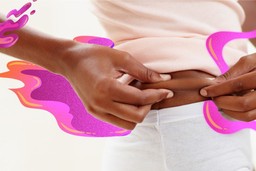The three most common eating disorders (ED) include anorexia nervosa, bulimia nervosa and binge eating disorder. Those who struggle with anorexia nervosa have the highest mortality rate of any psychiatric disorder. It is a complicated mental health disorder that is not clearly understood. There are limited effective treatments and medications and patients frequently relapse. Therefore, researchers are continually trying to find new ways to help treat this complicated and debilitating disease.
You can learn more by reading the other parts of our eating disorders blog series:
Part 1: 3 Most Common Types of Eating Disorders
Part 2: Why Someone Who Looks Healthy May Have An Eating Disorder
Part 3: Disordered Eating Isn’t The Same as an Eating Disorder
Part 4: Psychedelics and Their Potential for Treating Eating Disorders
Recently, a surge of focus on psychedelic research has been investigating the effect of psychedelic therapy on eating disorders. Specifically, four psychedelic substances have shown promising results: Ayahuasca, Ketamine, MDMA, and Psilocybin.
Read on to find out about the latest research on these psychedelics and their potential for treating EDs.
Ayahuasca for Eating Disorders
Ayahuasca is a plant medicine brew that contains the psychedelic substance DMT. It is traditionally used by indigenous Amazonian ceremonial leaders as part of ceremonial healing and religious rituals. Ayahuasca awareness and recognition have been increasing in Western society in recent times. Research has shown its potential in treating a variety of mental health issues including depression, anxiety, and addictions.
One study looked at the therapeutic effect of ayahuasca on EDs. Semi-structured interviews regarding their experiences with ceremonial ayahuasca drinking were completed with 16 individuals previously diagnosed with an ED. Thematic analysis was conducted. The themes that emerged included shifts in body perception, a decrease or cessation of ED and mental health symptoms and an emphasis on ceremonial setting and after-care. The study concluded that further research should be conducted to understand ceremonial ayahuasca drinking in the healing of EDs.
Another study looked at the perspectives of 15 ceremony leaders with experiences leading ayahuasca ceremonies and their theories of eating disorders. It’s called “Getting to the Root:” Ayahuasca Ceremony Leaders’ Perspectives on Eating Disorders. Click here to read more about this study.
Ketamine Reduces Intrusive Thoughts
Ketamine is a general anesthetic that offers pain relief and sedation and produces a dreamlike or hallucinogenic state. It has psychedelic effects at higher doses. Recently, ketamine has become a widely used treatment through off-label prescriptions for anxiety, PTSD, and treatment-resistant depression.
The FDA designated ketamine breakthrough therapy status for treatment-resistant depression in 2013. Ketamine is an approved medication, legal, and regulated; therefore, in the last decade, the rise of ketamine use and ketamine treatment clinics has rapidly increased.
Currently, there is a lack of research that focuses specifically on ketamine in the treatment of ED; however, a review published in 2021 showed there is potential evidence for its effect on treating disorders that involve recurring and intrusive thoughts and generate associated compulsive behaviors such as EDs. The review concluded the following:
“These uncharted waters include short- and long-lasting neurobiological changes, impacts on the modulation of network activity and the functional connectivity of the brain, as well as the effects of drug-driven structural and functional modulations on mind function. However, a safe assumption is that joint efforts employing psychedelic-assisted psychotherapy can provide much-needed therapeutic options for OCD, MDD, SUD, ED and more. This is a brave new world that we need to explore.”
A 2022 review looked at the evidence and future directions for ketamine as a novel psychopharmacotherapy for EDs. It showed that there are few studies that examined the therapeutic use of ketamine for EDs. Unfortunately, most of these were limited to case series and reports and focused on anorexia nervosa over other ED types.
However, the review concluded that the studies show therapeutic potential for an under-researched and complex mental health disorder. Specifically, ketamine may be effective for those who do not respond to standard treatment that includes dietetic, psychological and pharmacological interventions.
MDMA for PTSD and Eating Disorders
MDMA is a synthetic compound under investigation in clinical trials. MDMA stimulates the brain to release neurotransmitters including serotonin, dopamine, and norepinephrine and hormones including oxytocin, vasopressin, cortisol and prolactin. It temporarily alters the brain’s physiology, decreasing the activity in the amygdala and increasing the activity in the prefrontal cortex.
In 2017, the FDA designated MDMA-assisted psychotherapy with a “Breakthrough Therapy” status for the treatment of PTSD. It is anticipated that MDMA will be approved by the FDA as a psychotherapeutic treatment for PTSD.
Eating disorders and PTSD are highly comorbid (ED-PTSD) and often present simultaneously in a patient. A randomized double-blind, placebo-controlled trial of MDMA-assisted therapy of adults with severe PTSD showed significant results in reducing ED symptoms. The study included 90 individuals with severe PTSD. Outcome measures included the Clinician-Administered PTSD Scale and the Sheehan Disability Scale. The Eating Attitudes Test 26 (EAT-26) was administered to assess ED symptoms at baseline and at the end of the study. The results showed a significant decrease in EAT-26 scores in the total group of PTSD participants who received MDMA-assisted therapy compared to the placebo group. The study concluded that MDMA-assisted therapy for those with ED-PTSD is promising but requires further study.
Several clinical trials are underway investigating MDMA therapy for eating disorders.
Psilocybin for Anorexia Nervosa
Psilocybin is an indole alkaloid that is structurally similar to the neurotransmitter serotonin (5-HT). Some of the common effects of psilocybin include feelings of expansiveness, oneness, and connection with others and the universe, transcendence of time and space, ego dissolution, visual distortions, and sensory synesthesia.
In May 2021, the Imperial College London began conducting a pilot study that is investigating psilocybin as a treatment for anorexia nervosa (AN). Their estimated completion date is in June 2024. Their aims are the following:
Primary Aim: To assess the acceptability and efficacy of treating anorexia nervosa with psilocybin.
Secondary Aim: to use Magnetic Resonance Imaging (MRI) and Electroencephalography (EEG) to examine the neuronal underpinnings of treatment with psilocybin in this patient group
The clinical trial includes patients who have been diagnosed with AN for at least 3 years and have not experienced improvements with standard treatment. Participants attend 8 visits over a period of 6 weeks. During this time, it includes three sessions with psilocybin dosing, 2 MRI scans, up to 5 EEG recordings, and questionnaires and interviews to assess psychological measures. A 12-month follow-up is conducted.
A proof-of-concept study is examining the efficacy and safety of COMP360 25 mg of psilocybin therapy compared to COMP360 1 mg for those with anorexia nervosa. The primary outcome measure is a change from the baseline in the Eating Disorder Examination (EDE) global score. The secondary outcome measures include safety, the proportion of patients with adverse events, change from baseline in the Yale-Brown Obsessive Compulsive Scale (Y-BOCS) and change from baseline in weight. It is currently recruiting in Baltimore, and San Diego and will be recruiting in New York and the UK.
There are current trials that are looking at psilocybin in the treatment of other conditions such as alcohol use disorder, depression and anxiety in Parkinson’s Disease, existential distress in palliative care, headache disorders, OCD, and body dysmorphic disorder. Click here to see a complete list of current psychedelic clinical trials.
The role of psychedelics in treating eating disorders looks promising. More research is required to further understand how psychedelic therapy will benefit those who struggle with an eating disorder and the long-term effects these medicines have.
If you are considering psychedelic-assisted therapy, take a look at our vetted directory of licensed providers and connect with someone near you or online.
References
Brewerton, T. D., Wang, J. B., Lafrance, A., Pamplin, C., Mithoefer, M., Yazar-Klosinki, B., Emerson, A., & Doblin, R. (2022). MDMA-assisted therapy significantly reduces eating disorder symptoms in a randomized placebo-controlled trial of adults with severe PTSD. Journal of Psychiatric Research, 149, 128–135. https://doi.org/10.1016/j.jpsychires.2022.03.008
Bulik, C. M., Flatt, R., Abbaspour, A., & Carroll, I. (2019). Reconceptualizing anorexia nervosa. Psychiatry and Clinical Neurosciences, 73(9), 518–525. https://doi.org/10.1111/pcn.12857
Lafrance, A., Loizaga-Velder, A., Fletcher, J., Renelli, M., Files, N., & Tupper, K. W. (2017). Nourishing the Spirit: Exploratory Research on Ayahuasca Experiences along the Continuum of Recovery from Eating Disorders. Journal of Psychoactive Drugs, 49(5), 427–435. https://doi.org/10.1080/02791072.2017.1361559
Martinotti, G., Chiappini, S., Pettorruso, M., Mosca, A., Miuli, A., Di Carlo, F., D’Andrea, G., Collevecchio, R., Di Muzio, I., Sensi, S. L., & Di Giannantonio, M. (2021). Therapeutic Potentials of Ketamine and Esketamine in Obsessive–Compulsive Disorder (OCD), Substance Use Disorders (SUD) and Eating Disorders (ED): A Review of the Current Literature. Brain Sciences, 11(7), 856. https://doi.org/10.3390/brainsci11070856
Ragnhildstveit, A., Slayton, M., Jackson, L. K., Brendle, M., Ahuja, S., Holle, W., Moore, C., Sollars, K., Seli, P., & Robison, R. (2022). Ketamine as a Novel Psychopharmacotherapy for Eating Disorders: Evidence and Future Directions. Brain Sciences, 12(3), 382. https://doi.org/10.3390/brainsci12030382
Spriggs, M. J., Douglass, H. M., Park, R. J., Read, T., Danby, J. L., de Magalhães, F. J. C., Alderton, K. L., Williams, T. M., Blemings, A., Lafrance, A., Nicholls, D. E., Erritzoe, D., Nutt, D. J., & Carhart-Harris, R. L. (2021). Study Protocol for “Psilocybin as a Treatment for Anorexia Nervosa: A Pilot Study.” Frontiers in Psychiatry, 12. https://doi.org/10.3389/fpsyt.2021.735523
UCSD. (2023, April 4). UCSD Anorexia Clinical Trials — San Diego. Clinicaltrials.ucsd.edu. https://clinicaltrials.ucsd.edu/anorexia
Williams, M., Kingston Miller, A., Loizaga-Velder, A., Files, N., & Lafrance, A. (2022). “Getting to the Root”: Ayahuasca Ceremony Leaders’ Perspectives on Eating Disorders. Journal of Psychoactive Drugs, 1–9. https://doi.org/10.1080/02791072.2022.2113484







